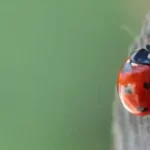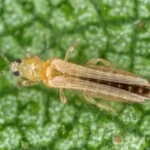Are unwanted pests wreaking havoc in your garden, leaving your plants struggling to survive? You’re not alone if you’ve found yourself frantically searching for a natural solution to protect your green oasis. In this article, we’ll explore the beneficial bugs that can come to your rescue by controlling damaging garden pests and promoting pollination.
From fertilization to pollination, there are plenty of good insects that can promote health and production in your garden. Here are 10 beneficial garden bugs that help your plants flourish:
- Ladybugs
- Praying Mantises
- Bees
- Hoverflies
- Parasitic Wasps
- Ground Beetles
- Assassin Bugs
- Lacewings
- Spiders
- Dragonflies
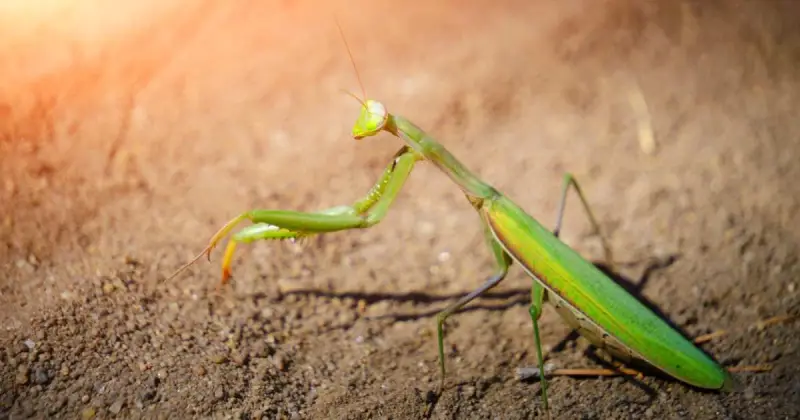
Are you curious about these unsung heroes buzzing around your garden and how they can help you do your work for you as a backyard gardener? Stay tuned to uncover the specific insects that can help you grow more food, how to attract them to your green sanctuary, and the incredible benefits they bring.
Get ready to witness firsthand the magical impact these beneficial bugs can have on your plants’ health and vitality. Let’s explore how these tiny allies can transform your garden into a thriving and balanced ecosystem.
Humble Highlights
- Discover 5 of the top beneficial backyard garden insects and unlock their mind-blowing advantages to help protect your plants from harm, reduce the need for chemical pesticides, and promote a healthier and more robust garden ecosystem.
- Save time (and your hair) by uncovering how ladybugs, green lacewings, spiders, and others help control the natural balance of your garden and keep invading pest invasions in check so you can get back to what you do best—growing your food!
- Discover how to grow more food in the garden and how the humble ground beetle can be your nocturnal ally in combatting slugs, snails, and insect larvae so you can promote a more natural and sustainable form of pest control.
Ladybugs: Tiny Garden Heroes
Ladybugs, or lady beetles, are highly efficient garden predators that feed on aphids and other soft-bodied pests. Surprisingly, these beneficial bespeckled insects can consume up to 5,000 aphids during their short lifetime – making them voracious eaters and fantastic garden helpers.
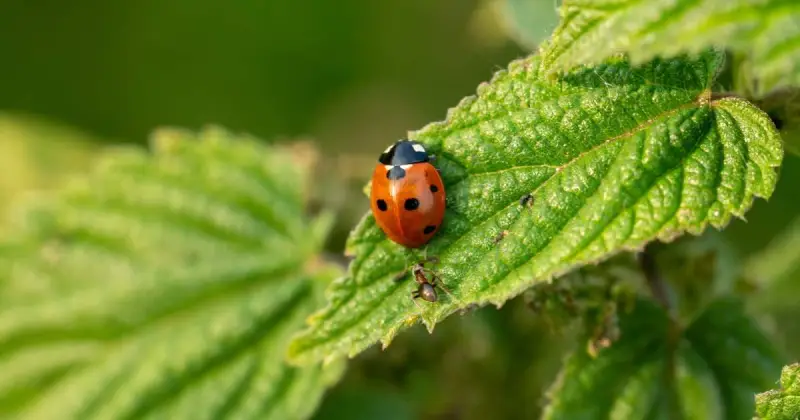
Ladybug larvae resemble small alligators. These spotted friends are skilled at controlling pest populations by preying on scale insects, spider mites, and tiny caterpillars. 1
But ladybugs are legendary for their ability to control swelling aphid colonies. By controlling aphid populations, ladybugs help protect plants from catastrophic damage and promote healthy growth. Additionally, ladybugs are a natural and environmentally friendly form of pest control, reducing the need for chemical pesticides.
Although ladybugs can help control aphids, if the colony has overrun your garden, it may be too late to introduce ladybeetles to combat them. Although they have insatiable appetites, they can only consume so much.
If this scenario applies to you and the fate of your planting season hangs in the balance of encroaching aphid armies, consider utilizing natural options first, like Neem oil. Synthetic insecticides should be used only as a last resort since these applications will not discriminate between aphids and the beneficial bugs listed in this article.
Green Lacewings: Pest Predators
Green lacewings, also called aphid lions in their larval stage, are effective predators of soft-bodied garden pests, especially aphids. Here are some interesting facts about these beneficial insects:
- Unique Hunting Technique: Green lacewing larvae have long, sickle-shaped jaws that they use to pierce and extract the body fluids of their prey, such as aphids. This specialized method helps them efficiently control aphid populations in gardens.
- Varied Diet: Adult green lacewings consume pests and enjoy pollen, nectar, and honeydew. This diverse diet makes them valuable pollinators and natural pest controllers, enhancing the overall health of garden ecosystems.
- Attraction to Light: Green lacewings are naturally attracted to garden lights at night. Gardeners can utilize this behavior to draw these pest predators to specific areas, assisting in managing aphid infestations in an eco-friendly manner. 2
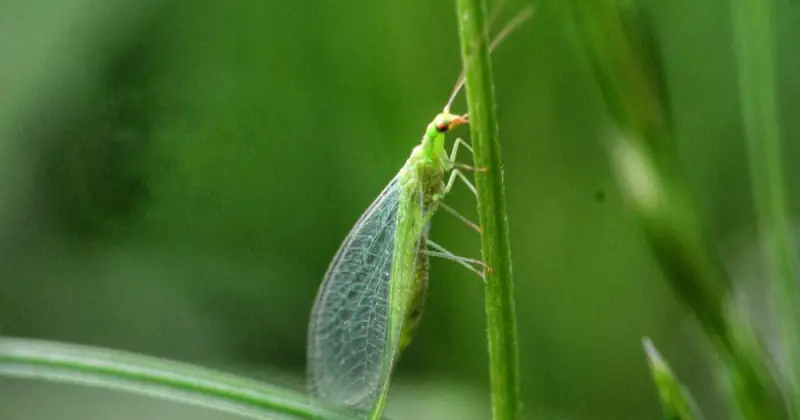
Praying Mantids: Gardener’s Bodyguards
Praying mantids are valuable allies to gardeners. They efficiently control various garden pests like caterpillars, aphids, and mosquitoes. These proficient predators also target pests like grasshoppers, moths, beetles, and flies. Their adept hunting tactics involve using specialized forelegs to precisely capture and detain their prey.
However, their cannibalistic nature can limit their long-term pest management impact. While mantid egg cases are expected in gardens, as they often go unnoticed, the survival rate isn’t guaranteed as they can fall victim to other predators. Gardeners may need to supplement mantids with other beneficial insects, such as ladybugs and lacewings, to enhance pest control. 3
Gardeners seek to attract beneficial insects because they play a pivotal role in maintaining a healthy and balanced ecosystem. Beneficial insects help control pest populations by preying on harmful insects, reducing the need for chemical pesticides, and promoting natural pest control. The video below explains the top 10 beneficial creepy crawlers you want in your garden and how each can do the heavy lifting for you!
Spiders: Silent Protectors
As efficient predators, spiders contribute significantly to garden ecosystems by naturally controlling insect populations, including mosquitoes, flies, and moths. They employ various hunting techniques, such as weaving webs and unique ambush tactics, to catch prey effectively.
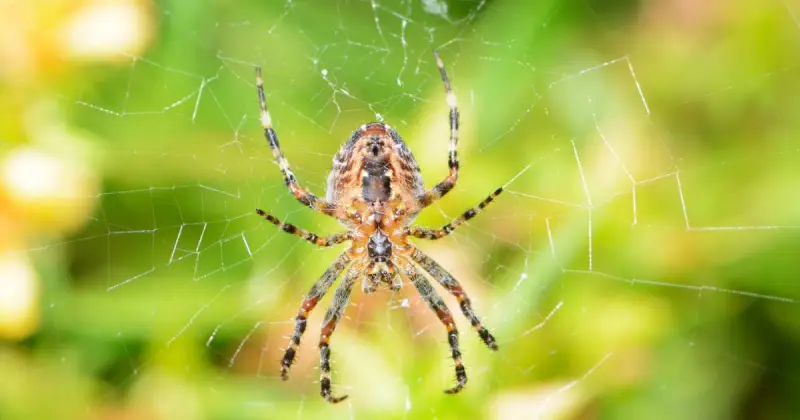
- Natural Pest Control: Spiders prey on insect pests, reducing the need for chemical interventions to manage their populations.
- Diverse Hunting Methods: These arachnids use intricate webs and stealthy ambush tactics to catch their prey in the garden environment efficiently. 4
- Movement Detection: Spiders are attracted to movement and can sense vibrations, allowing them to target and capture insects precisely.
Spiders silently protect your garden by maintaining a healthy ecosystem through hunting skills. Because they feed on such a wide variety of insects, spiders help maintain a natural balance in the garden, reducing the need for chemical pesticides and fostering a more natural and environmentally friendly space.
Additionally, spiders are food sources for birds and other predators, contributing to the overall biodiversity of your garden’s ecosystem.
Ground Beetles: Soil Saviors
Ground beetles, belonging to the Coleoptera and Hemiptera orders, are essential predators that help maintain a balanced ecosystem by feeding on plant-eating insects in the garden. These beneficial bugs are natural pest controllers, mainly targeting pests like slugs and snails. Ground beetles also protect garden plants from damage by preying on invasive moths and other harmful insects.
Their predatory behavior significantly reduces the population of harmful insects, contributing to a healthier garden environment. Attracting ground beetles to your garden offers a chemical-free pest control solution, promoting a thriving garden ecosystem. These insects ensure that pests are managed effectively, fostering a harmonious balance between predators and pests in your garden. 5
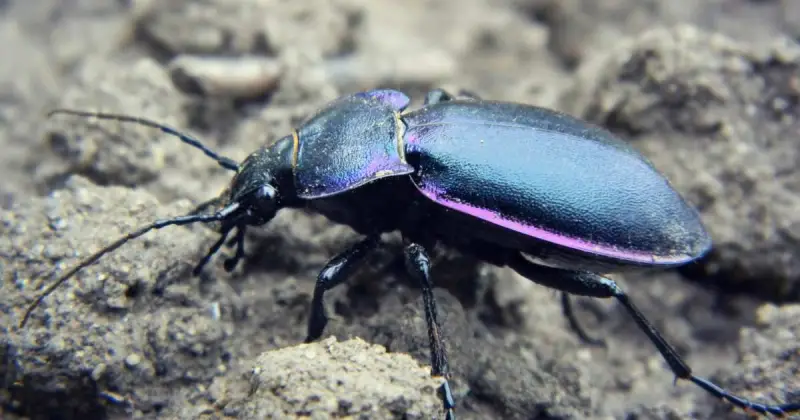
Conclusion
As you observe and embrace these uniquely beneficial bugs into your backyard garden, appreciate nature’s miracles and the invaluable work these tiny critters do on your behalf. These small but mighty creatures are essential pest controllers, safeguarding your garden’s delicate balance for years.
They’re like silent garden warriors, ensuring the well-being of your ecosystem. Embrace these beneficial bugs as your partners in maintaining a healthy garden and witness the flourishing life they help to nurture. Your garden will be a better place with them by your side.
Have you invited beneficial insects into your backyard garden? We’d love to know how you did and what benefits you’ve noticed. Please take a moment now to comment below and tell us about your success with these unique garden allies!
SOURCES
- Royal Entomological Society – Aphidophagous Ladybirds (Coleoptera: Coccinellidae) And Climate Change: A Review
- National Library Of Medicine, National Center For Biotechnology Information – Green Lacewings (Neuroptera: Chrysopidae) Are Commonly Associated With A Diversity Of Rickettsial Endosymbionts
- Wikipedia – Mantis
- North Carolina State University, Lee County Center – Garden Of Weavin’: The Benefits Of Garden Spiders
- Colorado State University, College of Agricultural Sciences – Ground Beetles


